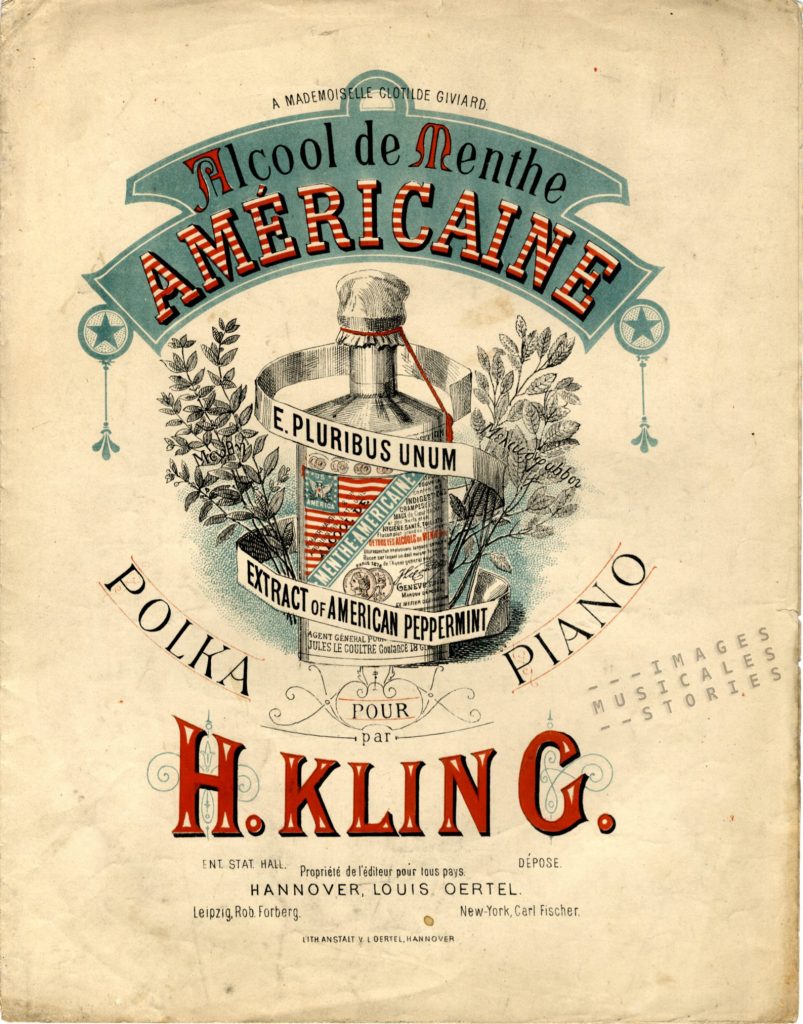
Our story starts with a cover for a commercial song to promote an ‘American’ mint alcohol. Well, not very American as you will learn from the little fait divers we are about to tell.
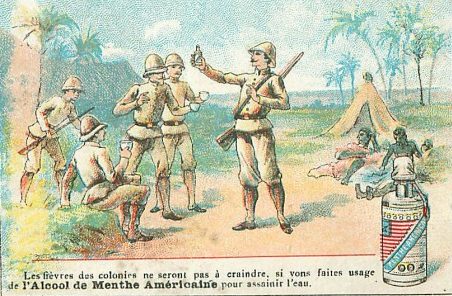
But first this. Mint alcohol is a solution of essential mint oil diluted in alcohol. Not the best of recipes if you ask me, but hey someone even invented menthol cigarettes.
According to a publicity from 1884 the menthe américaine could treat cholera. It was also a mixture of the highest quality to stop epidemics, and a remedy for dyspepsia, stomach cramps, head aches, nausea, colonial fevers or in the event of one or other epidemic. Mmm, haven’t we seen similar effects for an alcoholic beverage before?
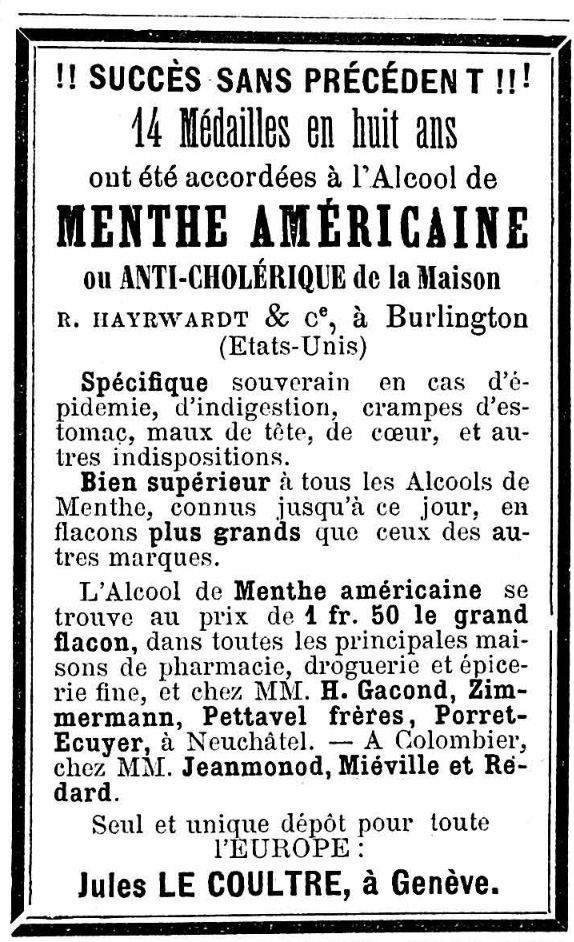
This advertisement tells us that the medicinal drink was an American creation by R. Hayrwardt & Cie from Burlington in the United States, and exclusively imported by Jules Lecoultre, who owned a drug store in Genève. Now this Burlington-origin was a clever find because there are over a thirty places called Burlington in the US. Hard thus to verify the credentials of the merchandise…
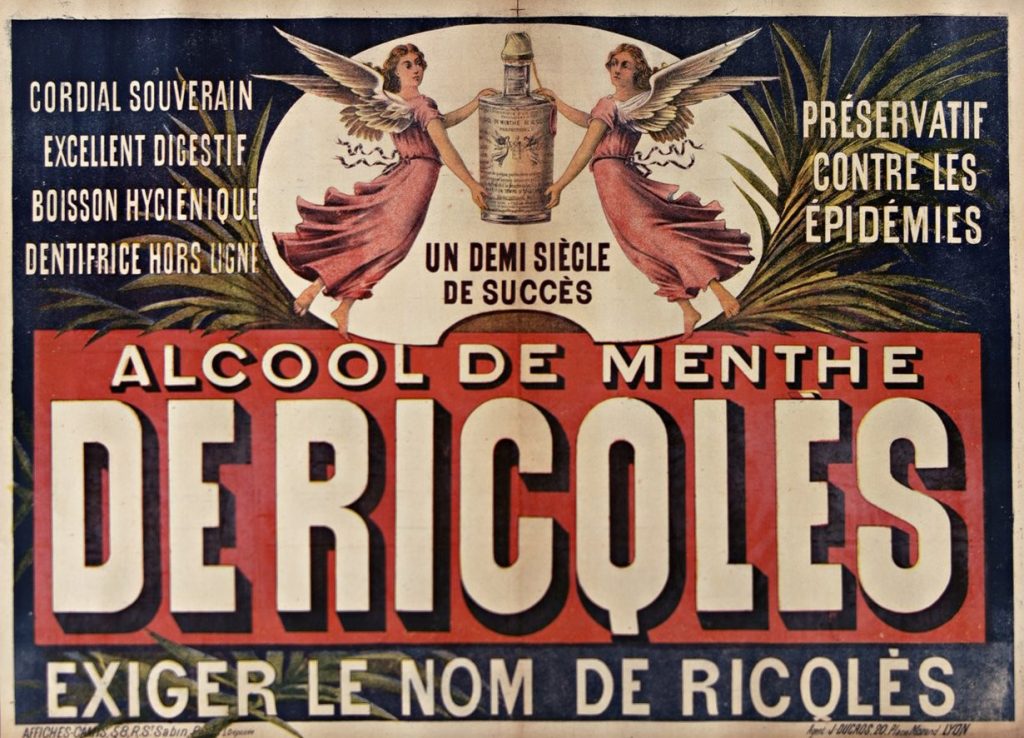 In 1893 the company of Jules Lecoultre (by then Bonnet et Cie) had to appear before the court. Its biggest rival Ricqlès, who was selling L’Alcool de Menthe de Ricqlès, accused Lecoultre of fraudulently inventing the American house ‘R. Hayrwardt & Cie’. And indeed, after having searched the whole USA no such firm was found. Nonetheless the court ruled that —although being unfair— it didn’t matter that the advertisement was not entirely truthful because this fabrication did not actually harm Ricqlès.
In 1893 the company of Jules Lecoultre (by then Bonnet et Cie) had to appear before the court. Its biggest rival Ricqlès, who was selling L’Alcool de Menthe de Ricqlès, accused Lecoultre of fraudulently inventing the American house ‘R. Hayrwardt & Cie’. And indeed, after having searched the whole USA no such firm was found. Nonetheless the court ruled that —although being unfair— it didn’t matter that the advertisement was not entirely truthful because this fabrication did not actually harm Ricqlès.
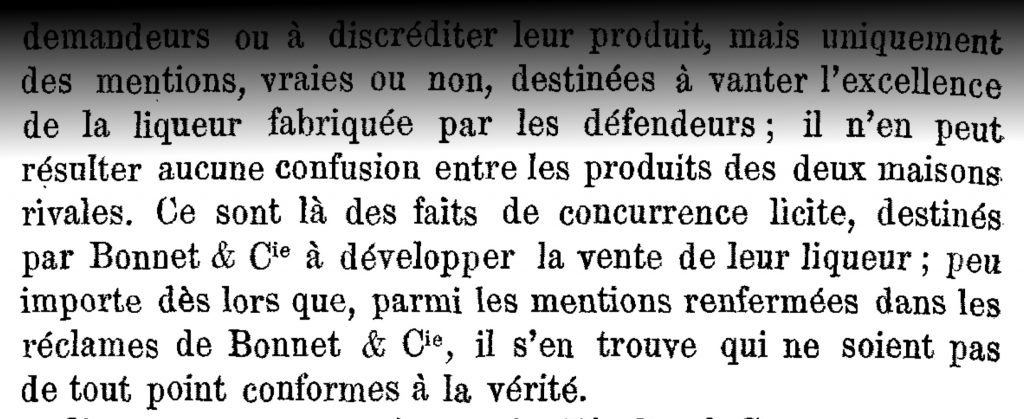
So the court was lenient: a little white lie about the origins of your product couldn’t harm anybody. However, when it came to winning medals, now that was an altogether other matter: only the strictest rules could be applied, as we’ll see next.
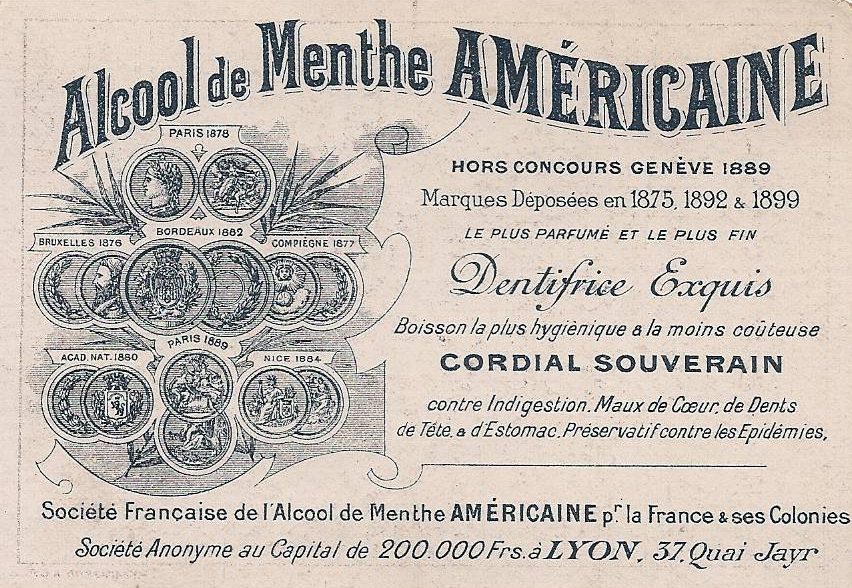
At one point Jules Lecoultre and his then associate Bonnet raised billboards all over Geneva, showing off all their medals and certificates. But they shrewdly omitted to mention for which competition Alcool de Menthe Américaine had been admitted ‘hors concours’. Ricqlès also brought this to court and claimed that Lecoultre & Bonnet mislead the public in letting it believe that they had participated at the Parisian World fair, while in fact they had only received a silver medal. Their hors concours participation was at a much lower graded fair in Genève. The court ruled that this was indeed an act of unfair competition to falsely promote the superiority of a product. As a consequence, Bonnet & Cie had to adapt all of their billboards!
Medals were clearly very important in these days.
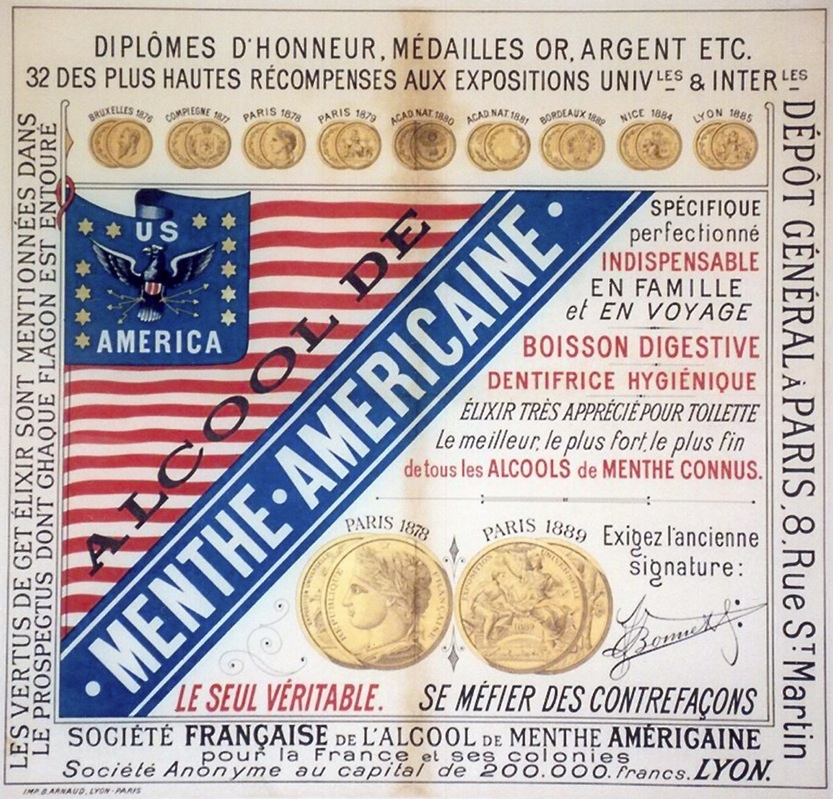 The polka Alcool de Menthe Américaine was composed by Henri Kling (1842 – 1918), a French-German horn virtuoso and professor at the Conservatoire in Geneva. He was also a prolific composer but with a penchant for the lighter music.
The polka Alcool de Menthe Américaine was composed by Henri Kling (1842 – 1918), a French-German horn virtuoso and professor at the Conservatoire in Geneva. He was also a prolific composer but with a penchant for the lighter music.
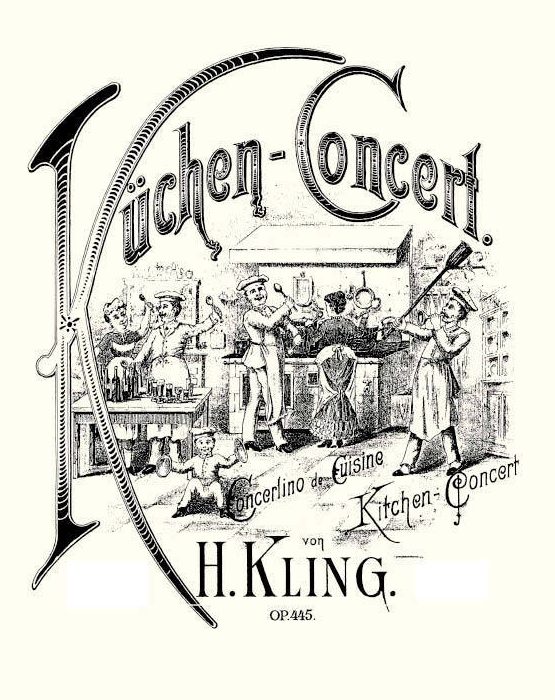 His peculiar Kitchen Concert for piano, snare drum, funnel, forks, glasses, shovel, egg beaters, wooden spoons and other kitchen utensils was probably written as (a Christmas) entertainment for children.
His peculiar Kitchen Concert for piano, snare drum, funnel, forks, glasses, shovel, egg beaters, wooden spoons and other kitchen utensils was probably written as (a Christmas) entertainment for children.
Let the kid in you enjoy Henri Kling’s culinary rhythms. Fascinating!

Super goed Divine 😉